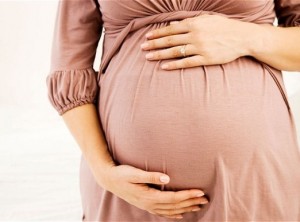 Women are strong, strong, terribly strong. We don’t know how strong we are until we are pushing out our babies.
Women are strong, strong, terribly strong. We don’t know how strong we are until we are pushing out our babies.
-Louise Erdrich, The Bluejay’s Dance: A Birth Year
Last November, I discovered that I was pregnant with my first child. And these past few months, I’ve done little but vomit, sleep, and try to find foods that will stay down. My mother predicted that this would happen.
“When I was pregnant, all I could do was run to the bathroom,” she has told me, over and over, trying to assign some of her experience to mine. Trying to find something useful to say.
My mother had been pregnant four times, the first occurring when she was twenty-five and married to a man who, in her eighth month, smashed a champagne bottle on her head. She hadn’t seen her mother in almost ten years, and had no resource besides magazines and women at the office to guide her through.
Her advice to me focuses on the practical: Eat Saltines. Sleep. Throw up when you need to—don’t fight it. Get a rocking chair without arms.
Having a baby is something I’ve wanted my whole life—to be a mom, to have a family, to love. These were things that kept me hopeful during the brittle years of my parents’ marriage, during the nights I kept my headphones on to block out the sound of glass breaking across the trailer.
But now that I can feel this little one stir inside me, the desire to love is also ridged with an incredible fear that, not only will I love poorly, but that my desire to love is tainted, broken, shaped irreparably by the ways my mother’s love leaked so bitterly from her.
“You should take a parenting class,” she chirps at me on a voicemail, “because you and Jeremy have never handled a newborn before, and that will help you know how.”
I want to pick up the phone and chirp right back: You should have listened to us when we said your boyfriend scared us. You should have told me that you loved me without expecting anything in return.
The anger fights a surge of guilt—if my mother had someone to take her to parenting classes, someone who watched out for her in those lonely, difficult days, things might have been different.
Many friends have told me that, as I become a mother, my perspective on my childhood will change. And, in some ways, it has—I’m not sure that what I expected of my mother was what I really wanted. I don’t know how to feel the weight of what she felt, mothering us: the needs of four kids, the unpaid rent, her father’s angry voice ringing in her head after we were all asleep, my own father tuned out and too tired to listen.
What I imagine I wanted was the stereotype of mother: meals ready, love unwearied, self-sacrifice, a small thing compared to the fulfilling joy of nurturing a child.
It is not enough, I think, to decide that you will love ceaselessly; it is not a simple act, something that you concede to as a way to fight off whatever curse or fear you feel chasing you.
But as I comb through mothering blogs and parenting books, that is the message I’m getting. That motherhood is worth the sleepless nights, the dry heaves, the blood that will eventually stream out of me; that, once I meet this child fully, all the difficulties of life will reveal themselves as preparations for this child’s coming, this child’s ability to make my life complete.
I suspect my mother was told this too, and that, in the face of what she experienced, it fell short of the needs she had, the aches she carried.
Louise Erdrich, in her memoir The Blue Jay’s Dance: A Birth Year, is critical of the messages that expectant mothers receive about their varied labors. “Most of the instruction given to pregnant women,” she writes, “is as condescending as the usual run of maternity clothes.” Not only it is “cutesy,” but it avoids the pain that mothering brings, the difficulty of “self-erasure,” as Erdrich puts it.
Becoming a mother neither completes nor diminishes you, but rather expands you, puts you in a position where you are being forever stretched and changed.
“The self will not be forced under,” Erdrich says, “nor will the baby’s needs gracefully retreat.”
And that is what makes me think on my mother’s words, my own thoughts bitter in my mouth, my fears keeping me up at night as I feel my belly stretch and my body ache: that the self I am now is not enough to give my child, and that the person I expected my mother to be was someone she could not be, no matter how much she tried.
How much she tries to give us still, her phone calls unanswered, her voice a cheery mask to the sadness that has stayed with her.
If the self will not disappear—if motherhood is not a phenomenon that will swallow my fears and wounds—then I must continue to face them, and face my mother, who sits behind a receiver with hands wide open, waiting to give, hoping to erase the things she did, the person she was.
And I must, and already do, love this little one with everything I have. The question is this: can my love turn to my mother, too, recast the light that’s been shed on her, the pain that she and I have spent our whole life trying to name?
The answer is: of course, it must, there is no other way. I simply do not know how it will happen. How will I birth a child, become both daughter and mother? How I will give love without fear?
And maybe I won’t know until this little one comes, life still pushing out of me, strength abounding, mysterious, and unafraid.











